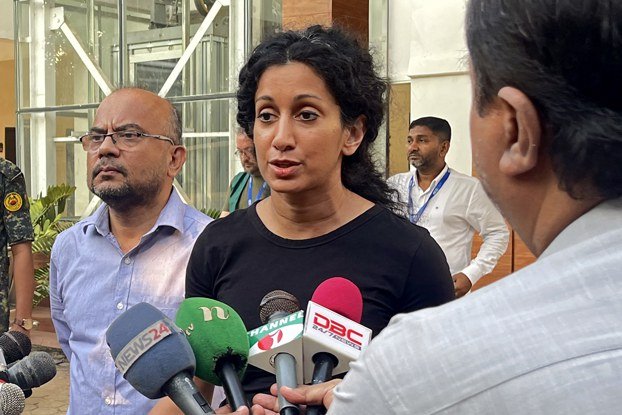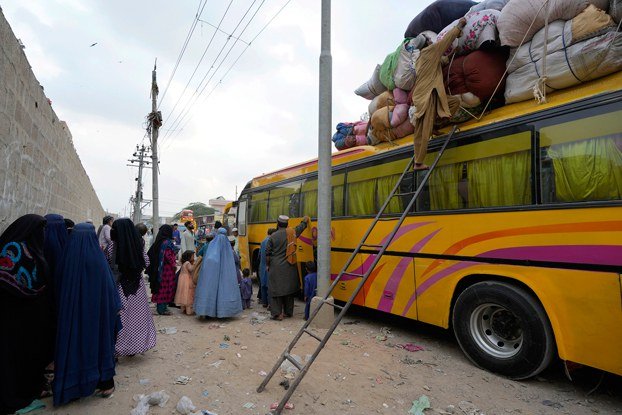Hui Muslims and police clash in China's Yunnan over mosque dome demolition
Police in the southwestern Chinese province of Yunnan have detained more than 30 people following clashes over the weekend between hundreds of armed police and Hui Muslims trying to prevent the demolition of a dome on a major mosque.Authorities in the mostly Muslim town of Nagu starting arresting people for public order violations after clashes on Saturday, when a government demolition team toppled the minarets and dome roof of the historic Najiaying Mosque.
It is part of the "sinicization" of religion under President Xi Jinping that ushered in a nationwide crackdown on Muslim, Christian and Tibetan Buddhist religious activities and venues in 2017.
The mosque, run by Hui Muslims, had recently expanded its minarets and dome, a move that was ruled illegal by a local court, al-Jazeera reported, amid concerns that further clashes look likely when authorities move to demolish a dome in nearby Shadian on Friday.
Social media footage posted by Twitter user Ismail Ma showed hundreds of police in full riot gear forming a blockade outside the mosque gate on Saturday. They prevented members of the public from entering, with some members of the crowd trying to push through the phalanx of officers and throwing what appeared to be paving slabs at police amid angry shouting.
In another clip, a crowd faces off with ranks of riot police in a city street, shouting "Allahu Akbar," according to Ma.
"According to the live video obtained so far, there are a lot of plainclothes policemen mingling among the people," Ma tweeted. "There are non-local people around who aren"t Muslims, and whose accents aren"t local, so watch out for ... plotting and framing."
An officer who answered the phone at the Nagu county police department declined to comment when contacted by Radio Free Asia on Monday.
"I don"t know about this – you need to wait for an official announcement," the officer said.
‘Disrupting social order’
On Sunday, the Tonghai county prosecutor and police issued a joint statement calling on anyone involved in the clashes to turn themselves in, saying they had "seriously disrupted social order."
Anyone who does so by June 6 and gives a truthful confession will be dealt with more leniently, the statement said, calling on others to inform on their fellow protesters to get a lighter sentence.
 A crowd faces off with ranks of riot police in Nagu in the Chinese province of Yunnan. Credit: majuismail1122 Twitter
A crowd faces off with ranks of riot police in Nagu in the Chinese province of Yunnan. Credit: majuismail1122 TwitterA Hui Muslim resident of Yunnan who gave only the surname Yang said the authorities have been demolishing mosque domes across the region in recent years, pointing to the "sinicization" program under Xi.
"Islam in China is to be de-Arabized," Yang said. "This is totally evil – there"s no freedom of religion at all."
Wlodek Cieciura, assistant professor in the department of Sinology, Islam and Muslims in China and the Sinophone World at the University of Warsaw, said via Twitter that the Nanjiaying mosque was "once of the most famous centers of Islamic learning and culture in China.”
He added that "the situation in Shadian town, some 90 km to the south is said to be even more charged."
Cieciura cited a Hui friend as saying that Shadian and Najiaying were "the last bastions of dignity for Chinese Muslims," and "This might be our final stand."
Shadian saw a major resistance among Hui Muslims to the Cultural Revolution smashing of religious venues and artifacts under late supreme leader Mao Zedong, suffering a major massacre in 1975, Cieciura said, adding that there are plans to similarly "renovate" the Shadian Mosque on June 2.
Targeting churches as well
A Christian believer from the eastern province of Anhui who gave only the surname Wang said the "sinicization" program had earlier targeted church crosses around the country in recent years, particularly in the eastern province of Zhejiang.
"They"ve removed pretty much all of the cross from churches now, and now they"re moving on to other religions," Wang said. "The removal of domes from mosques is similar to the removal of crosses."
"They are moving on to rectify religions other than Christianity," he said.
In a May 27 tweet, Ciecura cited comments from Muslims on social media as "declaring their readiness to defend the mosques to the end."
The Shadian resistance movement erupted in 1964 in response to nationwide political witch hunts targeting religious believers, and continued until at least 1975, culminating in the massacre of around 1,600 Muslims in an orgy of violence that the government blamed on disgraced former premier Lin Biao, and later on the Gang of Four.
The atheist Chinese Communist Party regards religious beliefs as a dangerous foreign import that could destabilize the regime, and deploys an army of “religious affairs” officials to micromanage and suppress faith organizations around the country.
Translated by Luisetta Mudie. Edited by Malcolm Foster.
[圖擷取自網路,如有疑問請私訊]
|
本篇 |
不想錯過? 請追蹤FB專頁! |
| 喜歡這篇嗎?快分享吧! |
相關文章
AsianNewsCast






















